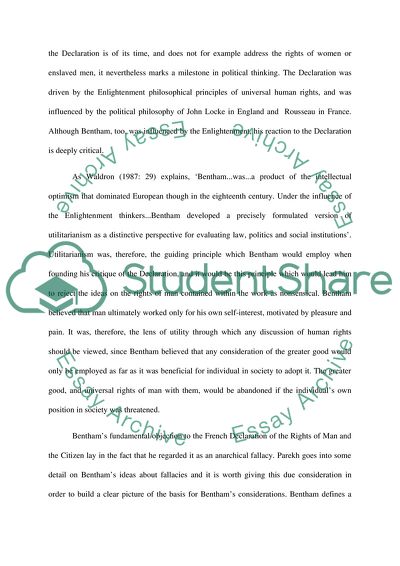Cite this document
(Enlightenment, Rights, And Revolution Essay Example | Topics and Well Written Essays - 3000 words, n.d.)
Enlightenment, Rights, And Revolution Essay Example | Topics and Well Written Essays - 3000 words. Retrieved from https://studentshare.org/history/1731972-why-did-bentham-believe-that-the-french-declaration-of-the-rights-of-man-and-the-citizen-would-result-in-anarchy
Enlightenment, Rights, And Revolution Essay Example | Topics and Well Written Essays - 3000 words. Retrieved from https://studentshare.org/history/1731972-why-did-bentham-believe-that-the-french-declaration-of-the-rights-of-man-and-the-citizen-would-result-in-anarchy
(Enlightenment, Rights, And Revolution Essay Example | Topics and Well Written Essays - 3000 Words)
Enlightenment, Rights, And Revolution Essay Example | Topics and Well Written Essays - 3000 Words. https://studentshare.org/history/1731972-why-did-bentham-believe-that-the-french-declaration-of-the-rights-of-man-and-the-citizen-would-result-in-anarchy.
Enlightenment, Rights, And Revolution Essay Example | Topics and Well Written Essays - 3000 Words. https://studentshare.org/history/1731972-why-did-bentham-believe-that-the-french-declaration-of-the-rights-of-man-and-the-citizen-would-result-in-anarchy.
“Enlightenment, Rights, And Revolution Essay Example | Topics and Well Written Essays - 3000 Words”, n.d. https://studentshare.org/history/1731972-why-did-bentham-believe-that-the-french-declaration-of-the-rights-of-man-and-the-citizen-would-result-in-anarchy.


